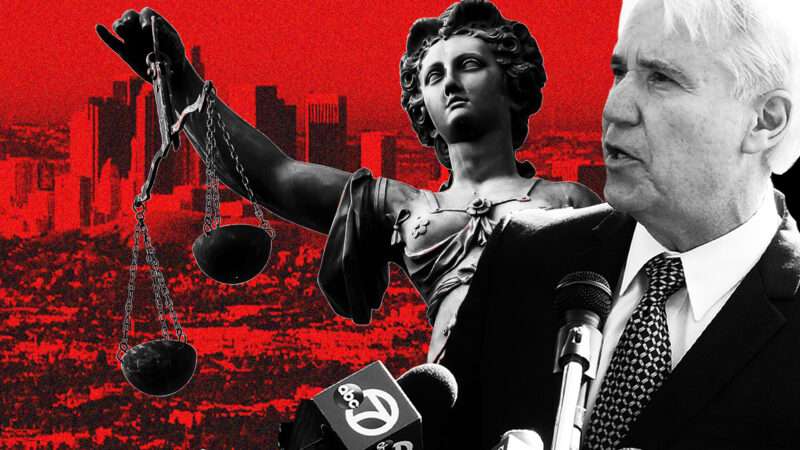
As long as humans have had fire, they have tried to bend it to their will. Native Americans set small fires for centuries to clear underbrush from forests or open up pasturelands. Later, European settlers purposely burned perimeters around their settlements to protect them from unexpected wildfires. In the late 19th century, private timberland owners organized the first groups to fight wildfires, often structured as cooperatives. In the American West, members paid dues based on acreage owned, the proceeds of which were used to protect timber stands from flames. By the turn of the 20th century, more than a dozen states had programs devoted to fighting wildfires.
But the federal government soon became entrenched as both forest owner and wildfire fighter. In 1905, President Theodore Roosevelt led the charge to establish the U.S. Forest Service, a quintessential Progressive Era agency that oozed with faith in centralized management. During his two terms, Roosevelt used presidential power previously granted by Congress to drastically increase the size of federal forests, setting aside tens of millions of acres. A large and lethal fire season in 1910 brought political salience to the destructive potential of wildfires, and the government stepped in. An agency publication summed up its stance at the time: “Protecting the Nation’s wildlands from fire was one of the new agency’s greatest responsibilities since, in the words of the new Forest Service, only the Federal Government can ‘give the help so urgently needed.'”
More than a century later, wildfires remain an urgent problem, and the feds’ help simply isn’t doing the job. Wildfires are getting bigger and more devastating, and muddled incentives are making a bad situation worse. The root of the problem is the idea that the federal government will show up virtually anywhere, anytime, to try to put out wildfires, regardless of the cost or effort required. Federal spending on wildfires has doubled in real terms over the past decade and grown fivefold since the late 1990s. Wildfire-related costs have consumed the majority of the Forest Service’s budget for years, prompting the common quip that the agency should be renamed the “Fire Service.” The implied federal guarantee of firefighting-no-matter-what signals to residents that it’s perfectly fine to build and live in fire-prone areas. Yet nudging more people to live in high-risk places has increased the potential for catastrophe.
Fires Are Getting Worse
For most of the 20th century, the prevailing stance of the federal government was that fires should be extinguished as aggressively and quickly as possible. It pursued this goal with lookout towers and networks of fire detectors that even included rural mail carriers. In the 1930s, the approach was embodied by the “10 a.m. rule”—the idea that all wildfires should be under control by that time the day following detection. By 1939, the Forest Service had developed units of parachuting smokejumpers to rapidly respond when fires did ignite, and by 1944, it had rolled out Smokey Bear to educate everyday Americans about fire prevention. The idea that all wildfire should be snuffed out held sway through much of the second half of the 20th century and remains a popular notion today.
But decades of demonizing fire hasn’t always helped. For various types of forests and landscapes, fire is a positive force, rejuvenating grasses and soils and keeping vegetation in check. Ponderosa pine trees need regular fire to thrive, for example. But while frequent, low-intensity fire brings ecological benefits—something well understood by countless timber owners in the Southeast who carry out controlled burns annually—a landscape that hasn’t seen fire regularly is much more likely to suffer a large and intense one once it finally comes. Decades of suppression have left many Western forests choked with dense stands of small-diameter trees, underbrush, and other growth. This has contributed to high fire risk in many places today and partially accounts for why wildfires in the West are getting worse over time.
Before 2000, wildfires generally destroyed a few hundred structures in the United States each year. From 2000 to 2010, that rose to roughly 3,000 or 4,000—a big jump. Then, in 2018, nearly 25,000 structures burned. According to insurer Munich Re, economic damage from Western wildfires has surged for several years, now totaling $10–$20 billion annually. In California, seven of the 10 most destructive fires in state history have occurred in the past five years. In 2020, fires in the West killed 47 people, destroyed 18,000 structures, cost $3.6 billion in suppression efforts, and caused $16 billion in damage. The season was notable for how much damage extended beyond California to Oregon, Colorado, and Washington.
Unfortunately, many predict the bad trends will get worse. Climate change has contributed to making many forests and other Western landscapes drier for longer. (About 40 percent of the acreage burned by wildfires since 1984 has been in forests, while the majority has been shrublands or grasslands.) Western fire seasons have lengthened by an average of 60–80 days over the last three decades. In some places, the fire “season” is no longer a season at all but a year-round concern. Insect and disease infestations have also left dead trees on millions of acres of forests, compounding the risk created by a century of striving to zealously put out every fire.
But the most fundamental reason wildfires are becoming a bigger problem is that there are now more homes and people in harm’s way. In recent decades, the area where houses meet forests and other wild vegetation has grown by one-third—and it’s not because the forests are encroaching. The footprint of such areas, which researchers call the “wildland-urban interface,” represents the fastest-growing type of land use in the contiguous United States. It now contains more than 43 million homes covering a total area larger than Texas.
The rapid growth in residential development not only puts more property and lives in fire-prone areas; it also increases the chances that new wildfires will ignite. People cause approximately eight in 10 wildfires, and human ignitions—whether from escaped campfires, burning debris, power lines, railroads, arson, or something else—threaten 30 times more homes in the wildland-urban interface than do fires caused by lightning. People are also responsible for helping to extend the wildfire season, which would be limited mainly to summer months if not for human ignitions.
Economists Dean Lueck of Indiana University and Jonathan Yoder of Washington State University have studied the evolution of wildland firefighting in the United States and note that the federal government has essentially had a “blank check” to suppress wildfires since the 1908 Forest Fires Emergency Act. They describe wildfire fighting today as a “highly structured, hierarchical, military-style” effort. The National Interagency Fire Center in Boise, Idaho, spearheads responses from the federal level and coordinates with state and local agencies, moving specialized firefighting crews and equipment from one active fire to the next.
“This network comprises a bewildering array of laws, policies, and contracts that create a complicated mix of incentives and outcomes,” Lueck and Yoder write. “Scholars and other commentators suggest that inefficiencies abound in the system, leading to over-investment in suppression and under-investment in pre-fire risk mitigation.”
The most egregious thing about this blank check to suppress wildfires seems to be the fruitlessness of most suppression efforts. “There is well documented evidence,” the economists write, “that fire suppression on large fires, especially when they are active, is often exceedingly ineffective.” Consider that tanker drops of fire retardant that seem to be made for cable news often have little effect on large fires. Likewise, “backfires” set purposely by firefighters to try to contain a wildfire often fail to accomplish that objective but end up destroying valuable timber or other property. Still, these tactics continue to be funded year after year. “Even when suppression of large fires may be effective,” Lueck and Yoder continue, “there are many cases in which the suppression costs far exceed the value of the protected resources.”
The biggest wildfire-related legislative action of recent years was when Congress formalized in 2018 the blank check by providing federal agencies with disaster-account funding for fires, a model akin to the one used to fund flood and hurricane responses. The reform separated disaster funding for fires from main budgets, ultimately making it simpler and easier for agencies to devote money to firefighting. Dubbed the wildfire “fix,” it did nothing to address the muddled incentives at the heart of the problem: Homeowners don’t pay for the government’s all-out efforts to put out fires and protect their lives and property; tens of millions of taxpayers do. The blank-check approach dulls people’s incentive to prepare for fires—including when it comes to choosing where to build and live.
Government Creates Noise
Prices contain information. A sky-high insurance premium to live on the edge of a Western forest, for instance, might inform you that the wooded lot is extremely risky and you should build your house elsewhere. But interference often drowns out the price message.
When the federal government spends seemingly limitless amounts to put out wildfires, it signals that it’s OK to move to riskier areas. As economists Patrick Baylis of the University of British Columbia and Judson Boomhower of the University of California San Diego point out, “the guarantee of federal government protection” from wildfires creates what’s known as a moral hazard. “Homeowners do not internalize the expected costs of future fire protection when choosing where to live or how to design and maintain their homes,” they write. “Perhaps just as importantly, local governments do not internalize these costs in zoning, land use, and building code decisions.” The economists conclude that government spending to suppress fires has created implicit subsidies, borne by the rest of us, for people who live in high-risk places.
The hazard comes from the expectation that the feds will swoop in to help out once flames are raging. Baylis and Boomhower estimate that these implicit subsidies to property owners can be more than 20 percent of a home’s value. In Montana and Idaho, they find that the subsidies exceed the total value of federal transfers to those states for the Temporary Assistance for Needy Families program.
The expectation of federal assistance also likely undermines incentives for property owners to take preventative actions. “The promise of aggressive firefighting at no cost may reduce private incentives to choose fire proof building materials and clear brush around homes, actions that can decrease the threat to homes during a wildfire,” they write. “Similarly, federally financed firefighting limits incentives for cities and states to create and enforce wildland building codes and defensible space regulations.”
Essentially, all-out federal firefighting transfers wealth from taxpayers to homeowners in risky areas. It also blunts the incentives to organize and prepare at lower levels of government—or on an individual level.
The distortions created by federal wildfire policy are similar to those created by federal flood insurance. The National Flood Insurance Program offers plans to homeowners in floodplains, hurricane alleys, and other areas prone to inundations. But legislation requires that it aim for “affordability” for premium holders rather than set premiums based on underlying risk. “Any insurance pricing structure that is not based on the risks associated with a home in a given location creates distorted incentives,” says Arizona State University economist Kerry Smith.
An implicit bailout when disaster hits makes it much easier to justify staying in a risky place. It’s how one Mississippi home in the flood program, valued at $69,000, ended up flooding 34 times in 32 years, resulting in $663,000 worth of claims. It’s little surprise that a program that makes rebuilding affordable, or even possible, in such a risky place would end up $20 billion in debt—after Congress recently wiped away $16 billion from the program’s balance sheet. To top it all off, Smith’s research suggests that in some areas it may not actually be low-income households who are benefiting from federally discounted insurance. Along the Gulf Coast, he and a coathor’s research findings “imply that in many locations we are subsidizing higher income households and not the ones envisioned by equity concerns.”
The blank check for wildfire fighting from the federal government clearly distorts incentives for homeowners. In California, policies regarding insurance markets have compounded the issues. After bad fire seasons resulting in record insurance payouts in recent years, insurers began to raise rates or even get out of the market altogether. In response, the state has sought to freeze policies and rates in what was already the most stringently regulated insurance market in the country. It is essentially encouraging people to remain or rebuild in places almost certain to burn again.
“People are used to paying, say, $1,600 a year of property cost for insurance,” Michael Young, a vice president at Risk Management Solutions told Bloomberg Businessweek last year. “But if that goes up to $4,000 or $5,000 per year, that might not be something that they’re interested in or capable of doing.” Nobody roots for their insurance premium to triple, but nobody wants their house to burn down either. And a trebling of insurance rates in fire-prone areas may be just the price signal needed to keep new residents away.
California clearly doesn’t see the situation that way. Its legislature passed a bill in 2018 that allows the state to prohibit insurance companies from canceling or refusing to renew policies for up to a year after a wildfire emergency. Regulators invoked the measure in 2019, when it covered 800,000 homes, and then renewed it in 2020, when it applied to 2.1 million homes—fully 18 percent of California’s residential insurance market. The upshot is that the premiums for homes in risky areas will be subsidized by policyholders in other areas, at least until the insurers now shouldering huge losses can withdraw from the market. Choosing to risk having your home destroyed by a wildfire is one thing. But other policyholders or even taxpayers shouldn’t be forced to subsidize you to take that risk.
By contrast, Colorado has taken a more prudent tack: allowing premiums to be adjusted to reflect different levels of fire risk. If a homeowner loses his policy because an insurer decides not to cover his area anymore, he can take risk-mitigating actions such as modifying the home or managing the trees around it and get a certification for having done so. In turn, various insurers agree to cover certified homes. Letting risk dictate the price of insurance gives property owners clear incentives to do the preventative work that reduces fire risk in the first place.
In California, rather than allowing the insurance market to continue to innovate, develop new wildfire models that are more precise, and price risk more accurately, regulators seem hellbent on making sure insurance prices will be based on anything except for underlying risk. But whether the disaster threat is flood or fire, the last thing policy makers should be doing is allowing people to disregard risk on other people’s dime.
A Better Response
Even if California’s insurance markets were allowed to function based on risk, the federal approach to suppressing wildfires—and implicitly subsidizing risky homebuilding—would remain.
Lueck and Yoder have pointed to two reforms that could help. One is to let more fires burn more widely, especially where few structures are at risk, and concentrate resources on protecting life and property. Until the 20th century, the approach to fighting wildfires was usually not to fight at all—a “let it burn” stance. Even today, fires covering many millions of acres are generally allowed to burn out in parts of Alaska every year.
A much more targeted approach to suppression makes economic sense. Not every acre is equally valuable, and not every acre burned is equally damaging. Here, the private sector is already helping. Wildfire Defense Systems is an example of a business that’s concerned not so much with acreage burned—as federal efforts to fight fires often are—as with structures protected. Working for insurers, it preemptively evaluates policyholders’ fire risk and advises actions to mitigate it. It also responds to active fires with equipment like water tankers or fire retardant to protect homes of covered policyholders. For nearly a decade, the company, which now serves 20 states, has been honing its system to judge a property’s fire risk based on vegetation, topography, climate, history, and various other factors. Of course, these sorts of efforts depend on insurers being able to charge rates that at least keep them in business.
The second reform would be to set federal wildfire funding at a base level, and then let agencies “bank” unspent funds from one year to the next. If that were the case, total public spending devoted to fires might actually go down, and the demand for services from private pioneers like Wildfire Defense Systems might go up—meaning homeowners and insurers rather than far-flung taxpayers would foot more of the bill for wildfire risk. That would, in turn, give property owners more incentive to use fire-resistant designs and materials and to prepare their homes and environs for fires by doing things like spacing trees appropriately, enclosing eaves, and screening vents.
Beyond the home, various actions could be taken in forests to try to reverse the current state of overinvestment in suppression and underinvestment in prevention. The idea would be to reduce ignition risk and limit the intensity of wildfires when they do break out. Prescribed burns and selective harvesting are two ways to reduce property damage and suppression costs from wildfire. Both aim to reduce the amount of fuel available to a potential fire—either by preemptively burning it or removing it mechanically. But there’s often a great deal of political and environmental opposition to such efforts, and when they do get off the ground, bureaucratic and legal obstacles often limit their scope.
Still, wildfires have become so salient that Sens. Dianne Feinstein (D–Calif.) and Steve Daines (R–Mont.) have been willing to reach across the aisle to argue that much more needs to be done to proactively manage forests. The two legislators have co-sponsored a bill to speed up efforts to decrease fire risk with measures like prescribed burns and mechanical thinning. Such projects are often delayed or derailed by environmental reviews, which take an average of nearly three years to prepare for large-scale forest projects—meanwhile, wildfires do not wait for paperwork to get done. The senators’ legislation aims to streamline such requirements for certain projects, as well as cut through some of the additional red tape that the Endangered Species Act can impose.
If bureaucratic obstacles can be flattened, then communities will be better positioned to invest in forest management themselves. One path to do that is through forest resilience bonds, a financial tool piloted by the Blue Forest Conservation nonprofit in 2018. The effort raised $4 million in private capital from insurance groups, private foundations, and other investors to restore 15,000 acres in Tahoe National Forest through activities like thinning trees, carrying out prescribed burns, and clearing brush. A local water utility and the state of California, both of which will ultimately benefit from reduced fire risk in the project area, will repay the bond. The Forest Service had projected the work to take a decade or more, but the upfront financing and novel partnership has accelerated the timeline to just four years. This model could even conceivably be applied to residential communities and insurers who seek to decrease fire risk.
Today, government wildfire policy often seems to promise the wrong kind of help, given how much of the spending aimed at putting out large fires is ineffective. Even if there’s been little appetite to reform the blank check approach to fighting wildfires, various private actors are taking matters into their own hands, from companies providing insurers with sophisticated risk models, to financial innovators decreasing the likelihood of catastrophic fires breaking out in forests, to individual residents deciding to make their homes more firewise. Still, nudging people to dismiss risk by making it cheaper and easier for them to live in fire-prone areas helps no one—least of all those in harm’s way.
from Latest – Reason.com https://ift.tt/3ydevpz
via IFTTT



